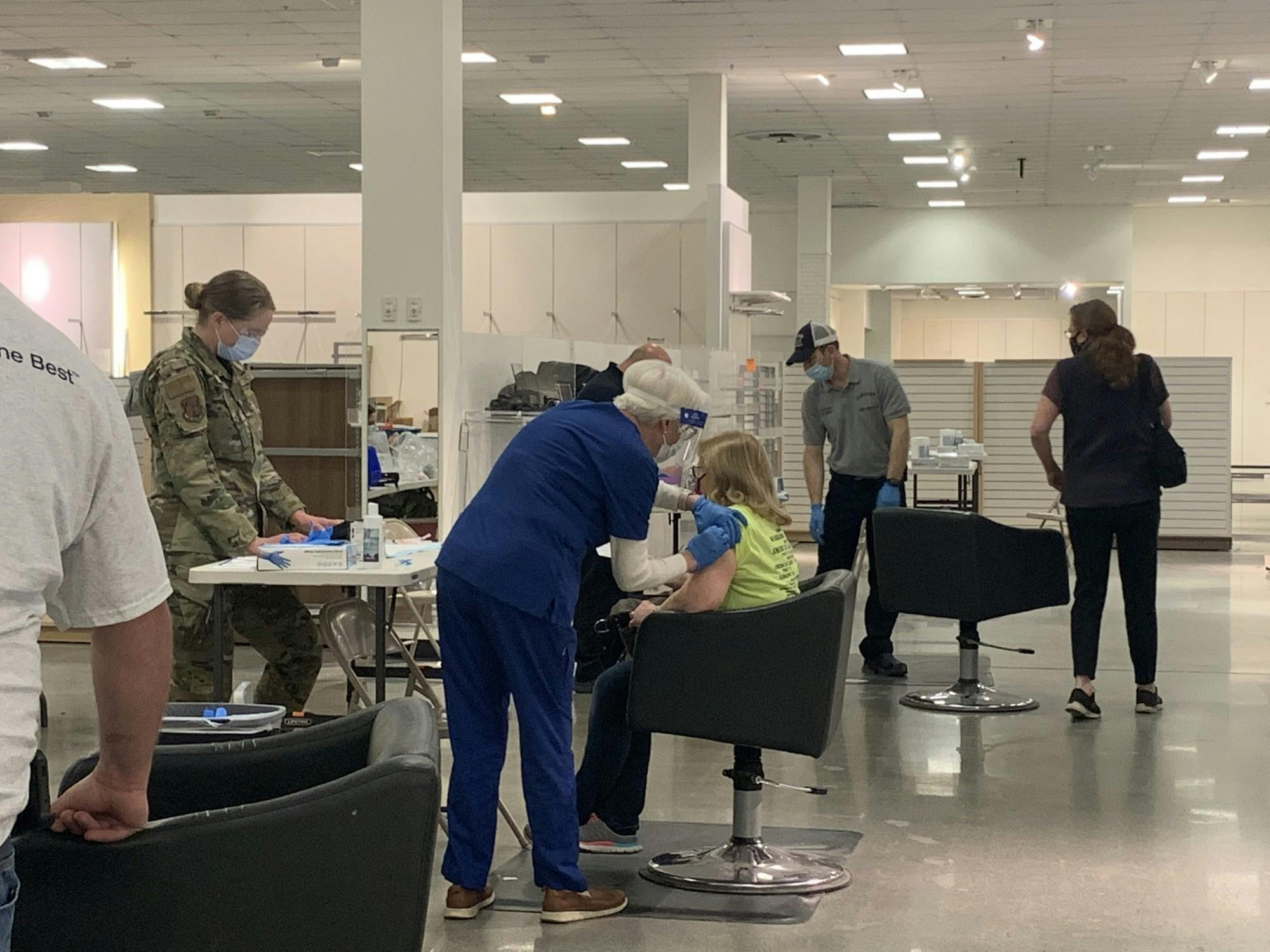On June 23, the College mandated that all faculty and staff must submit proof of their vaccination against COVID-19 by Sept. 1. The policy applies to all employees, but individuals can receive exemptions for religious or health-related reasons.
As of July 22, 92% of the on-campus Dartmouth community and 80% of the entire Dartmouth community are fully vaccinated. The Office of Human Resources is primarily responsible for implementing the staff vaccination policy.
When designing the policy, the COVID-19 Task Force worked closely with OHR, the Office of the General Counsel and the Office of Environmental Health and Safety, task force co-chair Lisa Adams wrote in an email statement.
“We had many discussions about this policy and were convinced by the data on both the safety and efficacy of the vaccines, which of course also led to the recommendations by the [Centers for Disease Control and Prevention] and local health authorities that everyone who can be vaccinated should get vaccinated,” Adams wrote. “We know vaccination is the best way to protect our community from COVID-19.”
Many faculty members agree with Adams and support the policy, including government professor Brendan Nyhan.
“I’m very supportive of the vaccination requirement,” Nyhan said. “I think it’s going to be essential to keep campus open and keep classes in-person in the fall, so I’m happy that Dartmouth instituted it.”
He noted that Dartmouth’s congregate living setting increases the risk of disease spread.
“That’s why we all spent so long on Zoom, avoiding contact with each other,” he said. “There’s an opportunity to bring back some normalcy, finally, and I’m excited about it.”
Nyhan has not taught a class in person since Winter 2020, but he said that he has had the opportunity to meet in person with students who perform research with him.
“We’re able to meet in person in my office,” he said. “Even that feels amazing after so long spent seeing people through computer screens.”
Public policy professor Charles Wheelan ’88 also adamantly supports a vaccine mandate, arguing that people have an obligation to the rest of their community to get the vaccine.
“Not to be overdramatic about it, but we as a society asked a large group of young men to land on the beaches of Normandy — we didn’t give them a whole lot of choice in that,” he said. “Getting a vaccine with a one in a million chance of significant side effects seems like a relatively small ask given the benefits for society overall. To me, it’s actually mind boggling that there is resistance to mandatory vaccination.”
Wheelan added that he has not heard of any vaccine hesitancy from faculty or staff members at Dartmouth.
“We’re an academic institution,” he said. “We stand for knowledge and using knowledge for the betterment of society — creating a vaccine and making it accessible is consistent with our mission.”
Despite this support, the policy poses questions about whether an institution can force its employees to get vaccinations. Recently, the New Hampshire legislature has been working to pass legislation making it more difficult for employers to require employees to get vaccines. HB 220, which has passed the state legislature but has not been signed into law, would make it so “no person may be discriminated against for refusal to accept an unwanted medical intervention, including immunization.”
Chief human resources officer Scot Bemis wrote in an email statement that there are no legal issues involved with Dartmouth requiring vaccines. The US Equal Employment Opportunity Commission has laid out rules regarding an employer’s ability to mandate employee vaccination. As long as the employer provides for exemptions in line with Title VII anti-discrimination law and the Americans with Disabilites Act they may require COVID-19 vaccinations.
The EEOC website describes how employers are legally able to request proof of vaccination despite potential privacy concerns. The commission’s website states that “although the EEO laws themselves do not prevent employers from requiring employees to bring in documentation or other confirmation of vaccination, this information, like all medical information, must be kept confidential and stored separately from the employee’s personnel files under the ADA.”
Visiting German studies professor Eric Miller, who has not had the opportunity to teach in person since the pandemic, brought up concerns he had with the College’s policy. While he said that he is still in full support, he hopes that the College takes into account digital accessibility.
“I know Dartmouth has been pretty good about providing opportunities to get vaccinated, but they also need to provide opportunities to not make it a big burden to get your proof submitted electronically,” Miller said. “There’s the assumption that everyone in the world has a smartphone, which is not necessarily true.”
The text of the policy states that employees have the option to call OHR and make an appointment for assistance submitting their vaccination documentation and online consent form.
The College will not discipline employees who remain unvaccinated or who fail to receive religious or medical exemptions, according to an FAQ page on OHR’s website. However, the FAQ page also states that these employees must complete twice weekly testing and may also be required to use additional personal protective equipment and adhere to physical distancing guidelines.
Similarly flexible policies have worked in the past, however, according to Nyhan.
“I would say that soft mandates may be an effective way to get almost everybody vaccinated without the potential backlash that comes with a mandate,” he said. “Many hospitals succeed with policies that say you have to wear a mask during flu season if you don’t get a flu shot. That inconvenience and the way you stand out often will prompt almost everybody to get vaccinated who’s on the fence.”
In her emailed statement, Adams highlighted the importance of continuing to inform people on the importance of COVID-19 vaccines.
“I was pleased to hear a colleague tell me that her coworker heard my explanation about how breakthrough infections can occur but are almost always much milder than getting COVID if you are unvaccinated,” Adams wrote, “and apparently the coworker went to get vaccinated the next day.”





